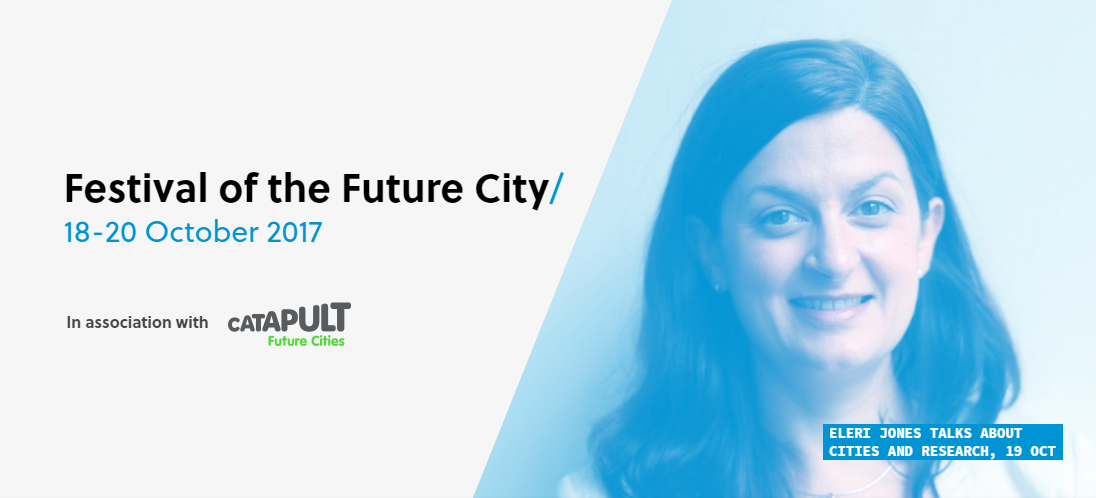
Space Syntax associate Eleri Jones spoke at the Festival of the Future City in Bristol on 19th October, in a session examining Cities, Research, Urban Futures and the Political Response.
Reflecting on the event, Eleri said,
“For me, the chance to speak on the panel was a great opportunity to reflect on how Space Syntax uses research, evidence and futures techniques, both in practical projects and for business strategies – some of which I have brought with me from my time leading the Foresight Future of Cities project at the Government Office for Science. The discussion was lively and thought-provoking and based on the reaction on Twitter, the audience was definitely engaged with the debate! There wasn’t complete agreement on everything, but we concluded that using evidence to convene diverse stakeholders about the future of our cities was critical – and this seemed to resonate with just about everyone.”
Eleri joined Claire Craig (former Director at Government Office for Science; now Royal Society), Mike Emmerich (MetroDynamics) and Nick Pearce (Director of the Institute for Policy Research and former director of the Institute for Public Policy Research) in the discussion on future cities research chaired by Gavin Kelly (former deputy chief of staff Number 10 and now Chief Executive of the Resolution Trust). The panel considered questions such as: What happens to the research led by thinks tanks and research bodies on future cities? What happens in government and what might be done to improve the research/ policy-making process? What lessons can we learn from the ways that research has informed policy across other areas of government?
Set over three days, the Festival of the Future City brought together politicians, writers, artists, scientists, change-makers, academics, journalists, students, the public, economists, futurists, policy makers, roboticists, philosophers, filmmakers, think tanks, charities, social enterprises, city-builders and more. They explored the key issues for the future of our cities: how we can solve growing inequality and segregation; build healthy cities and places; foster sustainable cities; and explore a future of devolved powers.